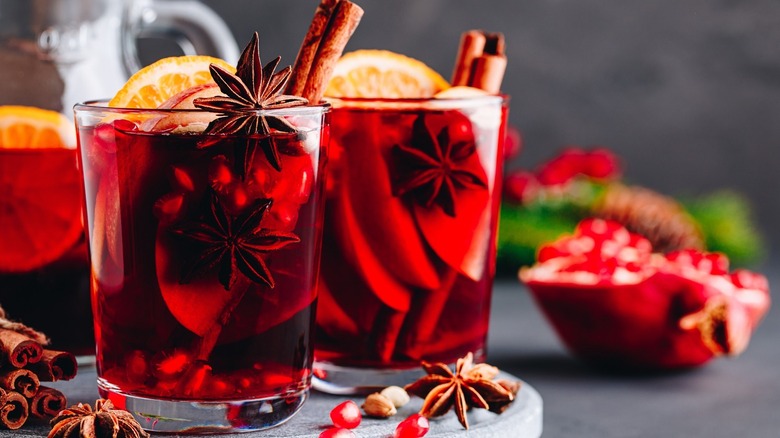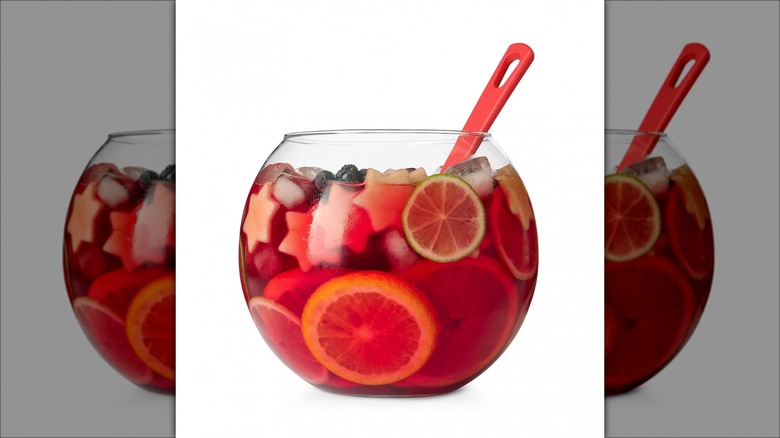You Can Use Cheap Wine For Your Sangria (We Have It On Expert Authority)
You know those recipes where some so-called expert snootily insists that even if you're only using a teaspoon of wine it needs to be of the very best quality? Well, it may be that those recipe developers are simply channeling their inner Ina Garten and a true wine expert might not necessarily agree, even for a recipe such as sangria where wine is actually the main ingredient. Case in point: Mashed recently spoke with Ramon Manglano, who's the wine director at a Michelin-starred restaurant called The Musket Room in Manhattan's trendy NoLita neighborhood. (That acronym, FYI, stands for North of Little Italy.) Manglano, with his impeccable wine pedigree, assures us that you need not base your sangria on expensive booze.
As Manglano told us when we asked his advice on choosing a wine for sangria, "It is perfectly okay to go with a cheaper bottle." He went on to explain, "If you're mixing additives into it, you're already changing the taste of the wine a lot." So there you have it, straight from the sommelier's mouth. If that's not enough to convince you, we'd also like to point out that, unlike in the aforementioned apocryphal recipe calling for just a teaspoon of wine, you'll likely be using the entire bottle to make sangria so there won't be any leftovers to drink on their own.
What wine should you choose for sangria?
Okay, so we've established that a wine destined for sangria should be something wallet-friendly, which means that yes, Aldi's Winking Owl and Trader Joe's Two-Buck Chuck (or Four-Buck, or whatever it is now) are both on the table. As for the type of wine, though, that depends on the sangria you're planning to make. If you're sticking with the standard red kind, a merlot or pinot noir could work, although a cab sav or shiraz may be too high in tannins and these tend not to taste their best when served cold. If you're venturing a bit farther afield, a budget-priced grenache or malbec might also be a good pick.
For white sangria, the ever-popular pinot grigio would work quite well, as would the blanc sisters, chenin and sauvignon. A tart and fruity riesling would pair well with summery fruits such as strawberries, while a light-bodied rose could be used to add some pretty pink color. For an extra-festive take on sangria, you can give it a little bit of the bubbly (bonus points if you know which famous wrestler's catchphrase this is) by using sparkling wine. You may choose to opt for a brut or Spanish Cava if you prefer a less sugary drink or plan to add additional sweeteners to the mix, but if you like things super-sweet, you could pick a less dry prosecco or spumante.

